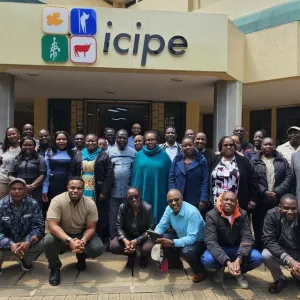Leveraging opportunity crops to transform food systems: Unveiling the 'Power of Diversity Funding Facility' in Nigeria, Zambia and Kenya
The Crop Trust and the Alliance have launched the Power of diversity funding facility in Nigeria, Zambia, and Kenya to boost opportunity crops, improve nutrition, and build climate resilience. The Power of Diversity Funding Facility (PDFF) has been officially launched in Africa, ushering in a bold initiative to conserve, grow, and elevate neglected “opportunity crops” with high promise. With workshops

Leveraging opportunity crops to transform food systems: Unveiling the 'Power of Diversity Funding Facility' in Nigeria, Zambia and Kenya
The Crop Trust and the Alliance have launched the Power of diversity funding facility in Nigeria, Zambia, and Kenya to boost opportunity crops, improve nutrition, and build climate resilience.
The Power of Diversity Funding Facility (PDFF) has been officially launched in Africa, ushering in a bold initiative to conserve, grow, and elevate neglected “opportunity crops” with high promise. With workshops and launch events successfully held in Nigeria, Zambia, and Kenya, this multi-donor effort is setting the stage for a transformative shift in food systems.
Managed by the Global Crop Diversity Trust (Crop Trust) and carried out in partnership with The Alliance of Bioversity International and CIAT, PDFF seeks to unlock the vast, underused potential of crops long cultivated by smallholder farmers but often ignored by mainstream agriculture and policy. By bringing these crops into the spotlight, the facility aims to diversify food systems, strengthen nutrition, and build resilience to climate change.

